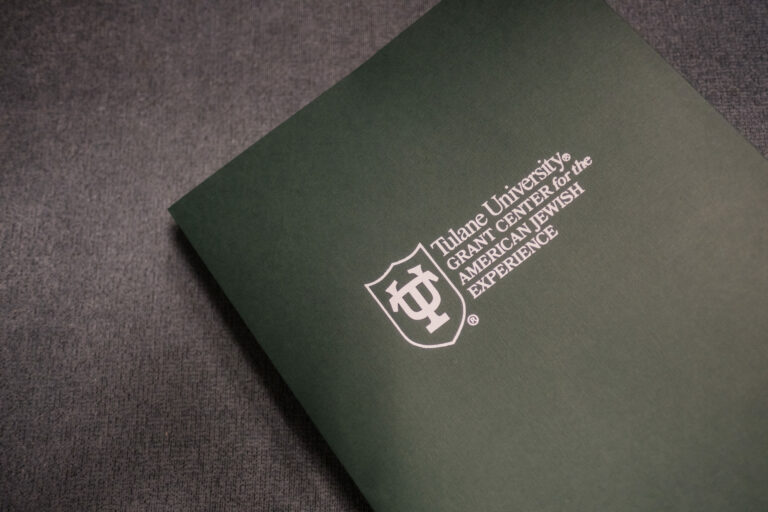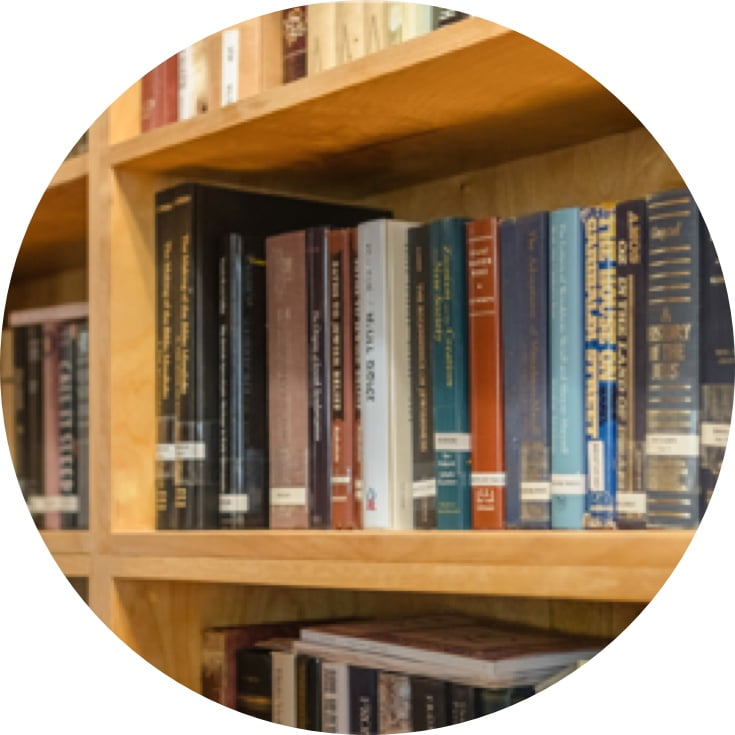Participation Level: Grant Center Library Resource
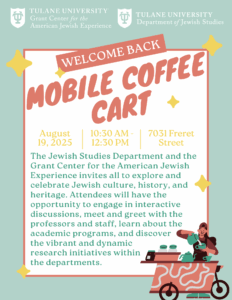
Open House Mobile Coffee Cart
The Jewish Studies Department at the Stuart and Suzanne Grant Center for the American Jewish Experience invites all to explore and celebrate Jewish culture, history,
Rebecca Kobrin Interview
Join Columbia University’s Rebecca Kobrin as she explores how the Grant Center weaves America’s Jewish history into the broader narrative of world history. Dr. Kobrin highlights the importance of seeing the bigger picture to understand how the past has shaped communities and to uncover broader solutions.
Emily Brauninger-Swan Interview
Meet Emily Brauninger-Swan, our passionate Assistant Director at The Grant Center! Emily shares the heart and purpose behind the incredible work we do at the Grant Center.
She dives into her deep love for the Jewish community and how that inspires her daily efforts to create meaningful connections and foster understanding. Watch as she reflects on the impact of our initiatives and the importance of community engagement in making a difference.
Audrey G. Ratner Speaker Series: A Credit to the Nation: The Lost World of East European Jewish Immigrant ‘Bankers,’ 1873-1930 with Dr. Rebecca Kobrin
How different would the central narrative of American Jewish immigration history sound if we invited its commercial practices to center stage? Between 1870 and 1930 thousands of East European Jewish immigrant businessmen set up financial enterprises called immigrant banks that not only shaped mass Jewish migration from Eastern Europe but American finance as well. Using an interdisciplinary approach that draws on court cases, the foreign language press, business records, and memoirs, Rebecca Kobrin’s talk highlights the central role East European Jewish immigrant entrepreneurs played on both sides of the Atlantic.
Ilana Horwitz Discusses Her New Book, “The Entrepreneurial Scholar: A New Mindset for Success in Academia and Beyond”
Grant Center’s Dr. Ilana Horwitz answers questions about her new book, “The Entrepreneurial Scholar: A New Mindset for Success in Academia and Beyond.” This book is a valuable guide for scholars stifled by the traditional academic route.
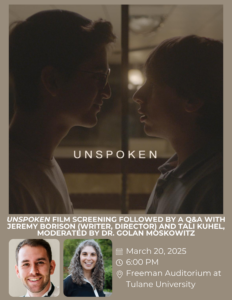
Queer Orthodox Jews and Holocaust Memory: ‘Unspoken’ Film Screening and Q&A
Join us as we screen Unspoken (2024), a groundbreaking new feature film following Noam, a closeted Jewish teenager in a religious community who discovers that

A Credit to the Nation: The Lost World of East European Jewish Immigrant ‘Bankers,’ 1873-1930 with Dr. Rebecca Kobrin
Located at 43 Newcomb Place, 3rd Floor of The Commons at Tulane University How different would the central narrative of American Jewish immigration history sound
American Jewish Literature Working Group
The American Jewish Literature Working Group of the Grant Center at Tulane convened at the suggestion of Michael Cohen, and has been co-organized by Maeera
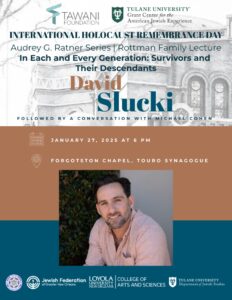
Rottman Family Lecture – In Each and Every Generation: Survivors and Their Descendants with Dr. David Slucki
In this talk, Dr. David Slucki examines the long-term impact of the Holocaust on survivors, and their children and grandchildren and how the ways we think about these impacts have changed over time and generations.
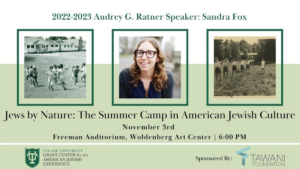
Audrey G. Ratner Series: Jews by Nature: The Summer Camp in American Jewish Culture with Sandra Fox
How did the residential summer camp become an integral part of American Jewish life? Is there something special about the relationship between Jews and camp?

Rottman Family Lecture: The Art of the Jewish Family with Laura Arnold Leibman
WATCH EVENT RECORDING Part of the TAWANI Foundation Audrey G. Ratner Speaker Series In The Art of the Jewish Family, Laura Arnold Leibman examines five objects owned


